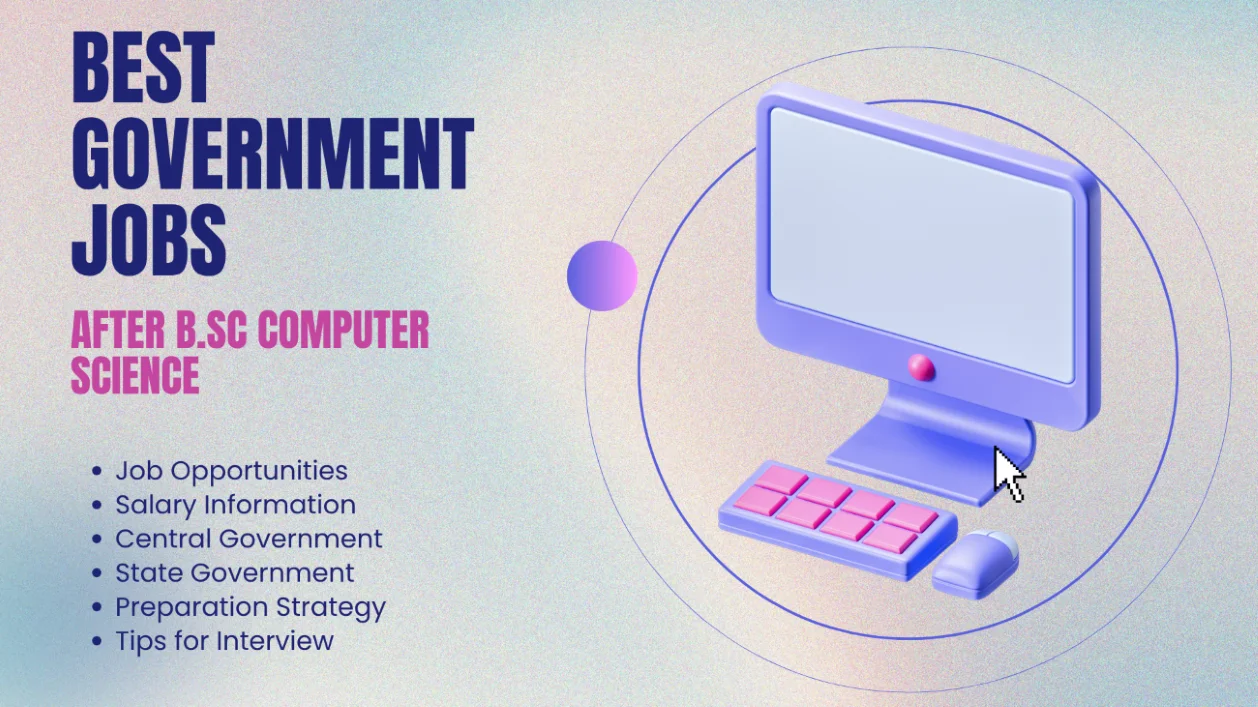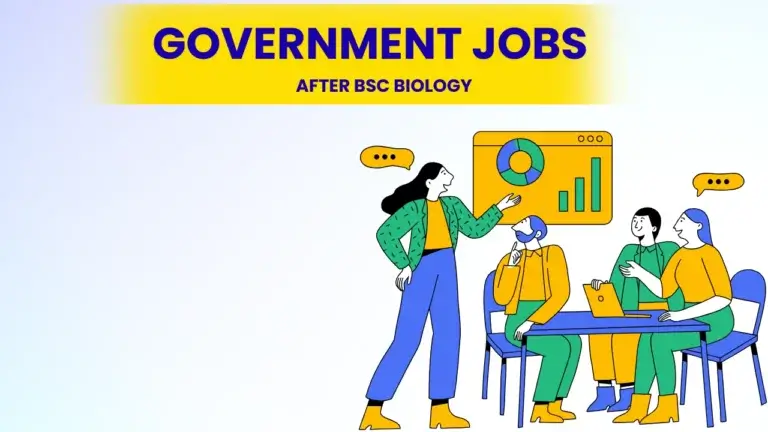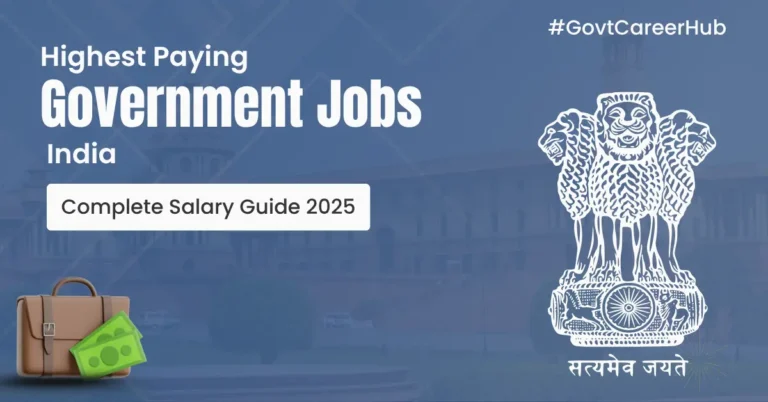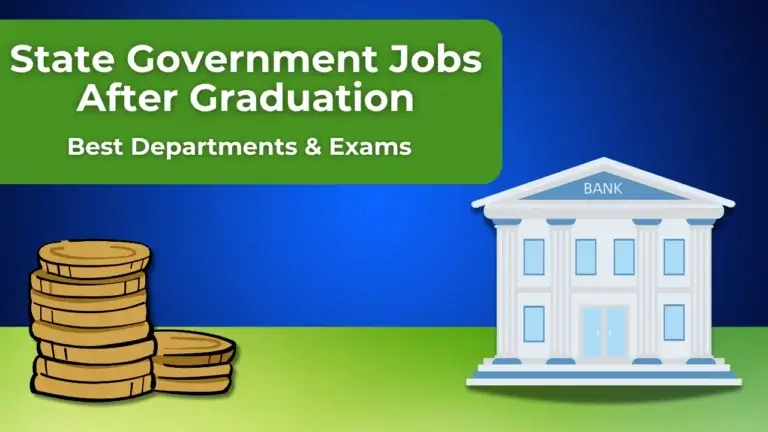Best Government Jobs After BSc Computer Science: Your Complete Career Guide for 2025

Last Updated: August 4, 2025 at 11:01 pm
Why Government Jobs Are Perfect for B.Sc Computer Science Graduates
After completing your B.Sc in Computer Science, you’re probably wondering about the Best Government Jobs After BSc Computer Science paths ahead. Government jobs offer an unbeatable combination of job security, work-life balance, competitive salaries, and excellent growth opportunities that make them incredibly attractive to fresh graduates.
The public sector in India is actively recruiting tech-savvy professionals to drive digital transformation across various departments. This creates numerous opportunities for computer science graduates to build meaningful careers while serving the nation.
Top Government Job Opportunities for B.Sc CS Graduates
Central Government Organizations
Indian Space Research Organisation (ISRO) stands out as one of the most prestigious options among government jobs after bsc Computer Science in India. ISRO regularly recruits for Scientist/Engineer positions that offer excellent career growth and the chance to work on cutting-edge space technology projects.
National Informatics Centre (NIC) is another excellent choice for career options after bsc cs. As India’s premier IT organisation in the government sector, NIC offers various technical positions from Scientist ‘B’ to Senior Technical Director levels.
Banking Sector Opportunities
Public sector banks recruit IT Officers through the IBPS Specialist Officer examination. These positions offer stable careers with good compensation packages and are among the most sought-after public sector jobs for cs graduates.
Major banks like SBI, PNB, Bank of Baroda, and others regularly announce vacancies for technical positions that perfectly match your computer science background.
PSU Jobs for B.Sc Graduates
Public Sector Undertakings (PSUs) provide some of the best government opportunities for computer science graduates:
- Oil and Natural Gas Corporation (ONGC) recruits Programming Officers through the GATE scores
- Hindustan Aeronautics Limited (HAL) offers Management Trainee positions in IT
- Bharat Electronics Limited (BEL) hires engineers for various technical roles
- National Thermal Power Corporation (NTPC) recruits IT professionals regularly
Detailed Government Job Options with Salary Information
| Job Position | Organization | Annual Salary Range | Selection Process | Key Requirements |
|---|---|---|---|---|
| Scientist/Engineer ‘SC’ | ISRO | ₹8-12 LPA | Written Exam + Interview | B.Sc CS + Strong technical knowledge |
| Scientist ‘B’ | NIC | ₹6-8 LPA | Written Test + Interview | Programming skills + System analysis |
| IT Officer | Public Sector Banks | ₹4-6 LPA | IBPS SO Exam | Banking awareness + Technical skills |
| Programming Officer | ONGC | ₹8-12 LPA | GATE Score + Interview | Valid GATE score + Programming expertise |
| Management Trainee (IT) | HAL | ₹5-7 LPA | Written Test + Interview | Leadership potential + Technical skills |
| Technical Assistant | Various Ministries | ₹3-5 LPA | Departmental Exam | Basic computer knowledge + Communication |
Read More | सरकारी नौकरी की तैयारी कैसे करें – बेस्ट टिप्स (2025) | Sarkari Naukari Ki Tyari Kaise Kare- Best Tips
Defence and Security Sector Opportunities
The defence sector offers exciting isro jobs for bsc Computer Science graduates and similar positions across various organisations:
Defence Research and Development Organisation (DRDO) recruits scientists for cybersecurity, software development, and systems analysis roles. These positions offer the opportunity to work on critical national security projects while building a rewarding career.
Indian Armed Forces also recruit technical personnel for their IT wings, offering both commissioned and non-commissioned positions for computer science graduates.
State Government Opportunities
Don’t overlook state government positions when exploring government jobs after bsc computer science in India. Many state governments are digitalizing their operations and need skilled IT professionals for:
- E-governance initiatives
- Digital infrastructure development
- Cybersecurity implementation
- Data management systems
These positions often provide better work-life balance and the opportunity to contribute directly to your state’s development.
Essential Preparation Strategy for Success
Understanding Exam Patterns
Most government exams follow a structured pattern including:
- General Awareness – Current affairs, government schemes, basic GK
- Quantitative Aptitude – Basic mathematics and logical reasoning
- Technical Knowledge – Programming concepts, database management, networking
- English Language – Grammar, comprehension, and communication skills
Building Technical Expertise
Focus on developing skills that are highly valued in government organizations:
Programming Languages: Master languages like Java, Python, C++, and JavaScript as they’re frequently tested in technical interviews.
Database Management: Learn SQL, database design, and data analysis techniques since most government systems handle large datasets.
Cybersecurity: With increasing digital threats, cybersecurity knowledge is highly valued across all government departments.
Web Development: Understanding of web technologies, frameworks, and digital platforms is crucial for modern government IT roles.
Staying Updated with Notifications
Create a systematic approach to track job openings:
- Bookmark official websites of target organizations
- Subscribe to employment news and government job portals
- Join relevant social media groups and forums
- Set up Google alerts for specific job keywords
Career Growth and Advancement
Government jobs offer structured career progression with regular promotions based on performance and experience. Most positions provide opportunities for:
- Higher Education Support – Many organisations sponsor employees for advanced degrees
- Skill Development Programs – Regular training and certification opportunities
- Internal Transfers – Possibility to work across different departments and locations
- Leadership Roles – Clear path to supervisory and managerial positions
Tips for Interview Success
When you clear the written examination, interview preparation becomes crucial:
Technical Preparation: Be ready to discuss your projects, programming experience, and theoretical knowledge in detail.
Current Affairs: Stay updated with technological developments, government policies, and your target organization’s recent achievements.
Communication Skills: Practice explaining technical concepts in simple terms, as you may need to work with non-technical stakeholders.
Frequently Asked Questions (FAQs)
Conclusion
The landscape of government jobs after B.Sc Computer Science is vast and promising, offering numerous pathways to build a secure and fulfilling career. From prestigious organisations like ISRO to stable banking sector positions, the opportunities are diverse and rewarding.
Success in securing these positions requires dedicated preparation, staying updated with notifications, and developing relevant technical skills. With the right strategy and consistent effort, you can land your dream government job and contribute to India’s digital transformation while enjoying excellent job security and growth prospects.
Start your preparation today, stay focused on your goals, and remember that every successful government employee started exactly where you are now. Your B.Sc Computer Science degree is your ticket to a bright future in the public sector.
Read Also:
- How to Prepare for Competitive Exams at Home: 3-Month Plan
- How to Crack Competitive Exams in the First Attempt: Proven Tips & Strategies for Success
- How to Start UPSC Preparation from Zero Level- The Best Guide
- SSC CGL Preparation on a Budget: Best Free Resources & Smart Study Hacks That Actually Work






